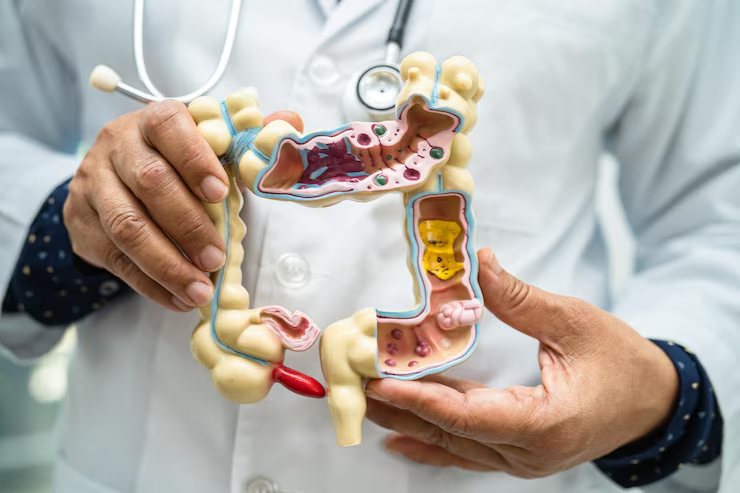Gastroenterologist Singapore: What Conditions Do They Treat?
Digestive disorders are increasingly prevalent in Singapore and they affect individuals of all ages. We created this article to explore some of the most common digestive disorders in Singapore that may warrant a visit to a gastro specialist in Singapore.
In it, we also highlight the importance of early detection and treatment. So, it doesn’t matter whether you were recommended a visit to a gastroenterologist in Singapore or if you’re getting symptoms you feel the gastro specialist is best placed to assess.
This guide covers all the basics. Keep reading!
What Conditions would be treated by a Gastroenterologist?
To begin with, gastroenterologists focus on the digestive system, which includes the stomach, intestines, esophagus, mouth, gallbladder, pancreas, liver, and bile ducts. The term “gastroenterologist” comes from combining “gastro” for stomach, “entero” for intestines, and “ologist” for specialist.
These specialists diagnose and treat a wide range of gastrointestinal (GI) conditions. Here is a quick roundup of the groups of conditions that may warrant a visit to a gastroenterologist in Singapore;
I. Gastrointestinal Diseases
- Gastroesophageal Reflux Disease (GERD)
GERD occurs when the lower esophageal sphincter (LES), a ring of muscle between the esophagus and stomach, weakens or relaxes abnormally. This action may allow stomach acid to flow back into the esophagus.
Common symptoms include heartburn, a burning sensation in the chest or throat, regurgitation of food or sour liquid, and difficulty swallowing. If left untreated, GERD can lead to complications like esophagitis, esophageal strictures, and Barrett’s esophagus.
- Peptic Ulcer Disease
Peptic ulcers are mainly caused by infection with the bacterium Helicobacter pylori (H. pylori) or the long-term use of nonsteroidal anti-inflammatory drugs (NSAIDs). Symptoms may include burning stomach pain, bloating, feeling full quickly, and nausea.
Complications of peptic ulcers can include bleeding, perforation (a hole in the wall of the stomach or intestine), and obstruction (blockage) in the digestive tract. Treatments may include medications, surgery, or endoscopic therapy.
- Irritable Bowel Syndrome (IBS)
The exact cause of IBS is unknown. However, factors like abnormal gastrointestinal motility, visceral hypersensitivity, inflammation in the intestines, and changes in gut microbiota may play a role.
Symptoms of IBS can vary. But, they often include abdominal pain or cramping, bloating, gas, diarrhea, and constipation. Management of IBS typically involves dietary changes, stress management, medications to control symptoms and lifestyle modifications.
- Inflammatory Bowel Disease (IBD)
IBD includes two main types; Crohn’s disease and ulcerative colitis. Both are chronic conditions that are characterized by inflammation of the gastrointestinal tract.
Symptoms of IBD can include abdominal pain, diarrhea, rectal bleeding, weight loss, and fatigue. Complications of IBD can be severe and may include bowel obstruction, ulcers, fistulas (abnormal connections between organs), and an increased risk of colon cancer.
II. Esophageal Disorders
- Esophagitis
Esophagitis can be caused by various factors, including gastroesophageal reflux disease (GERD), infections (such as from fungi, viruses, or bacteria), certain medications (like nonsteroidal anti-inflammatory drugs or bisphosphonates), and radiation therapy. Symptoms are varied but may include difficulty or pain when swallowing, chest pain, heartburn, and sometimes coughing or hoarseness.
Treatment for esophagitis depends on the underlying cause. They may include medications to reduce stomach acid (like proton pump inhibitors), antibiotics (for infections), antifungal medications (for fungal infections), and lifestyle changes.
- Barrett’s Esophagus
Barrett’s esophagus is thought to be primarily caused by long-term exposure to stomach acid due to GERD. The condition itself does not typically cause symptoms.
However, it increases the risk of developing esophageal adenocarcinoma which is a type of esophageal cancer. Management focuses on controlling GERD symptoms to prevent further damage to the esophagus. This may include lifestyle changes, medications, and sometimes surgery.
- Esophageal Cancer
Risk factors for esophageal cancer include smoking, heavy alcohol use, chronic GERD, obesity, and a diet low in fruits and vegetables. There are two main types of esophageal cancer: esophageal squamous cell carcinoma and esophageal adenocarcinoma.
Symptoms may include difficulty swallowing, chest pain, weight loss, and hoarseness. Diagnosis is typically made through imaging tests (like CT scans or PET scans) and confirmed by biopsy during an upper endoscopy. Treatment options depend on the stage of the cancer but may include surgery, chemotherapy, radiation therapy, or a combination of these.
III. Liver Diseases
- Hepatitis
Hepatitis can be caused by viral infections (hepatitis A, B, C, D, and E), autoimmune diseases (autoimmune hepatitis), excessive alcohol consumption, certain medications, and toxins. Symptoms of hepatitis may include fatigue, nausea, vomiting, abdominal pain, dark urine, pale stools, and jaundice (yellowing of the skin and eyes).
Treatment depends on the type and cause of hepatitis. However, they may include antiviral medications, corticosteroids (for autoimmune hepatitis), and lifestyle changes (such as avoiding alcohol).
- Cirrhosis
Cirrhosis is often caused by long-term liver damage from conditions such as chronic hepatitis, excessive alcohol consumption, non-alcoholic fatty liver disease (NAFLD), and certain genetic disorders. Symptoms of cirrhosis may include fatigue, weakness, easy bruising, jaundice, swelling in the legs and abdomen, and mental confusion.
Cirrhosis can lead to complications such as portal hypertension (high blood pressure in the liver), ascites (fluid buildup in the abdomen), hepatic encephalopathy (confusion and coma), and liver cancer. Treatment aims to slow the progression of cirrhosis, manage symptoms, and prevent complications. This may include lifestyle changes, medications, and in severe cases, liver transplantation.
- Liver Cancer
Liver cancer can be primary (starting in the liver) or secondary (spreading to the liver from other parts of the body). Risk factors for primary liver cancer include chronic hepatitis B or C infection, cirrhosis, heavy alcohol use, and certain genetic disorders.
For diagnosis, you may have to undergo imaging tests (such as CT scans and MRI) and confirm by biopsy. Treatment options for liver cancer include surgery, liver transplant, chemotherapy, radiation therapy, and targeted drug therapy.
IV. Pancreatic, Biliary, and Gallbladder Diseases
- Pancreatitis
Pancreatitis can be caused by gallstones, chronic alcohol use, certain medications, high levels of fats in the blood, infections, and genetic factors. Symptoms of pancreatitis may include severe abdominal pain, nausea, vomiting, fever, and a rapid pulse.
Pancreatitis can be acute (sudden onset, usually resolving with treatment) or chronic (long-term inflammation leading to permanent damage). The treatment choice for pancreatitis depends on the severity and type of pancreatitis. However, they mostly include fasting, pain management, intravenous fluids, and in severe cases, surgery.
- Gallstones
Gallstones are usually formed when there is an imbalance in the substances that make up bile. This may lead to the formation of hardened deposits in the gallbladder.
Gallstones can cause sudden and severe pain in the upper abdomen, back pain between the shoulder blades, nausea, and vomiting. Diagnosis is often made through imaging tests such as ultrasound or CT scans.
Treatment for gallstones may include medication to dissolve the stones. You may also be recommended minimally invasive procedures (such as laparoscopic cholecystectomy) to remove the gallbladder, or, in some cases, open surgery.
· Pancreatic Cancer
Risk factors for pancreatic cancer include smoking, obesity, family history of pancreatic cancer, chronic pancreatitis, and certain genetic syndromes. Symptoms of pancreatic cancer may include abdominal pain, weight loss, jaundice, loss of appetite, nausea, and changes in stool. Treatment for pancreatic cancer depends on the stage of the cancer but may include surgery, chemotherapy, radiation therapy, and targeted therapy.
Read Also: Interventional Cardiologist Singapore: What Do They Treat?
Wrapping Up
Gastroenterologists specialize in treating conditions that affect digestive health. The list above isn’t conclusive but should give you an idea of the conditions that may warrant a visit to a qualified gastroenterologist.
Find a Gastroenterologist in Singapore
Have you been recommended a visit to a gastroenterologist in Singapore? We offer thorough assessments and tailored treatments for various gastrointestinal issues. Call or visit us today to discuss your assessment and treatment.
Andrea’s Digestive Clinic: Colon | Liver | Gallbladder | GERD | Acid Reflux Specialist
101 Irrawaddy Road #21-11/12
Royal Square Medical Centre
Singapore 329565
+65 6264-2836







